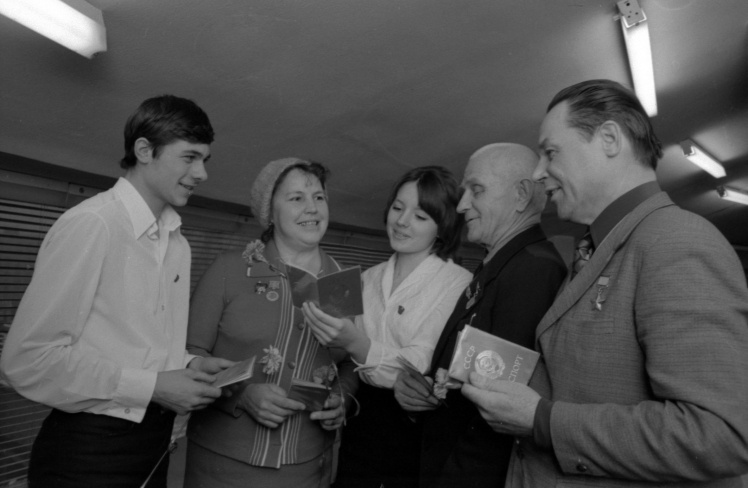News
Why peasants in the USSR were not allowed to have passports for a long time: how they were exploited
It's hard to imagine now, but the USSR had modern serfdom. The peasants who were herded into collective farms had no documents, were deprived of the right to free movement, and at first worked without pay, receiving so-called working days.
OBOZ.UA collected the testimonies of historians about how it happened. You may be surprised, but such enslavement lasted until the mid-seventies.
Passportization in the USSR
The system of issuing documents, which was quite specific in the Soviet Union, allowed the enslavement of peasants in collective farms. In 1919, the Bolsheviks introduced "labor books," which attached workers to an enterprise and, in return, gave them the right to receive ration cards. However, it was possible to obtain such a document only in several large cities. In the rest of the country, the issuance of documents was chaotic and largely depended on local authorities.
In 1923, almost immediately after the formation of the USSR, identity cards appeared. They recorded a person's name, date of birth, place of residence, marital status, children, and profession. In 1925, the institution of residence registration was introduced.
However, it did not last long. In the late 1920s, peasants began to flee en masse to the cities from forced collectivization. To stop this process, in 1932 some Soviet citizens were issued passports. The holders of such documents had to register at their place of residence (get a residence permit) within 24 hours of arrival. They received the document at the age of 16. However, it was issued only to residents of cities and workers' settlements, civil servants, and state farm workers. Peasants were simply assigned to collective farms.
Violation of peasants' rights
This regime severely restricted the rights of collective farmers. They could even go to the district center only with permission from the leadership. Violation of this rule was punishable by fines and repeated unauthorized departures were punishable by imprisonment.
The only way to get around this system was to bribe NKVD officers. After the Second World War, peasants who brought home trophies from Europe often used this practice to free themselves from collective farm slavery and move to the city.
The USSR went through several reforms of the passport regime in its history. During Stalin's "Red Terror," data on political convictions were added to passports. In Khrushchev's thaw, on the contrary, the regime was relaxed: passports were issued to residents of border areas and western republics, and the number of restricted areas was reduced.
The issue of granting peasants more rights was raised by Dmitry Polyansky, First Deputy Chairman of the Council of Ministers and future Minister of Agriculture, during the time of General Secretary Leonid Brezhnev. However, although Brezhnev became the head of the CPSU in 1964, the decision to issue passports to peasants was not made until August 28, 1974. At that time, the Council of Ministers of the USSR approved a new regulation on passports. It unified all documents: the cover was red instead of green, the number of mandatory columns with information about a person was reduced, special pages for photos at the age of 25 and 45 were introduced, and several other changes were made. In particular, they made it mandatory for all citizens to have a passport.
The issuance of new passports began in 1976. According to statistics, by the end of 1981, nearly 50 million rural residents had been issued passports. This gave them freedom of movement. In addition, collective farmers began to receive pensions.
Subscribe to OBOZ.UA channels on Telegram and Viber to keep up with the latest events.




























